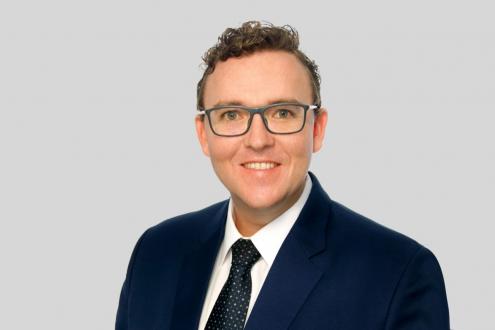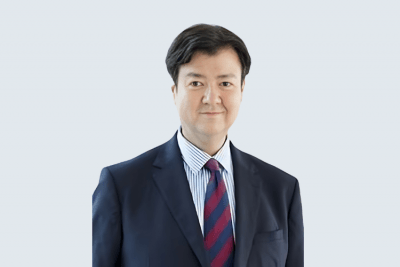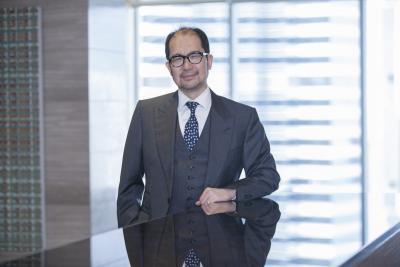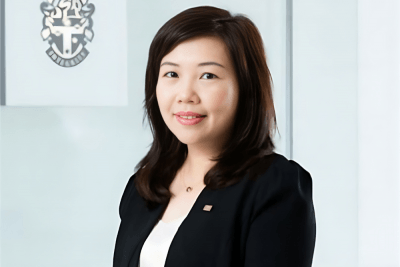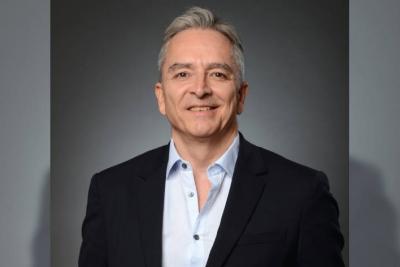Wealth Solutions & Wealth Planning
Henley & Partners’ Group Head of Private Clients Surveys the Current World of Investment Migration
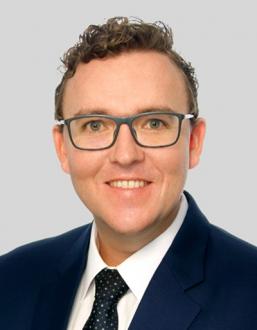
Dominic Volek of Henley & Partners
Jun 13, 2021
In so many ways, the world has been turned upside down and inside out by the Covid-19 pandemic. In the world of investment migration, demand has never been stronger for residence and citizenship alternatives around the world, with even more of the world’s wealthy assembling an assortment of options. Having for many years been located in Singapore, Dominic Volek moved to Dubai in late 2020, where the time zone is ideal to fulfil his current roles as a member of the six-strong global executive committee and as group head of private clients for investment migration consultancy Henley & Partners. Dominic has witnessed first-hand the ramifications of the pandemic in terms of alternative residence and citizenship planning amongst Asia Pacific’s wealthy private clients and also amongst governments, for many of which Henley also helps devise and advise on their official investment migration programmes. His usual life jetting from country to country has also changed dramatically, and now he consults remotely with team members globally and with clients from the world over, dividing his time between the Henley office and his home office. We ‘met’ with Dominic again recently to find out the latest state of the investment migration industry, which has enjoyed rapid growth in the past two plus decades since it was pioneered by Henley & Partners.
The Brief
The demand for investment migration alternatives amongst the world’s wealthy and super-rich has never been higher, and while Henley has quickly adapted its procedures and working practices to handle the increased demand, some government agencies have experienced a slowdown in the actual submission of applications since the pandemic began. This is largely due to lockdowns around the world which have made access to notaries and other key parties involved in-country more challenging. Moreover, in many countries, for example, Malta or Portugal, the actual physical presence of the applicant is required for providing biometrics.
The pandemic has focused the minds and hearts of many of the world’s wealthy, both from emerging countries with weak passports and political or economic concerns at home and from Tier 1 countries such as the US, UK and Canada, where the wealthy are increasingly seeing the value of having a portfolio of residence and citizenship options around the world, often matching their investments and their lifestyles.
Henley & Partners is busier than ever worldwide, with key priorities being to expand coverage in the growing US market - the number one source of clients right now - and in emerging nations where more feet are required on the ground such as India, Nigeria, and South America - demand is rising sharply, and once lockdowns fall away, more personal contact will be needed.
Another key mission for the firm is to further build the other leg of its worldwide business, namely advising governments around the world on their investment migration programmes, many of which Henley has designed over its two-plus decade history pioneering this industry, which today is a multi-billion-dollar industry across the globe. As many governments are seeking new ways to bolster their pandemic-hit finances, Henley anticipates a further flurry of activity ahead.
Dominic Volek himself has a great perspective on the global trends from his new base in Dubai which he and his family moved to in December 2020 from Singapore, after several very successful years of building the Asian operations. But it is from the lens of his new role as global head of private clients, that he anticipates robust growth ahead, both in the demand from the world’s wealthy, as they continue to realise the merits of jurisdictional and lifestyle diversification, as well as from governments themselves.
The Report
Dominic reports that the initial business execution challenges brought on by the pandemic are well in the past, at least from Henley’s perspective. The company had already onboarded many clients when Covid-19 hit. These HNWIs and UHNWIs were then spurred to accelerate what is often a protracted process of document gathering and application submissions. The company managed to rapidly reorganise internally, allowing the firm to again focus on the in-house processing of those applications and dealing with new enquiries remotely.
Slower progress on processing at government levels
Many investment migration programmes around the world, especially those available in Europe, generally require applicants to physically travel to their chosen country of citizenship or residence to give their biometrics, or have certain appointments and, obviously, those steps could not be undertaken due to the travel restrictions brought about by the pandemic. Moreover, access to many government and local agencies around the world has been challenging for clients to collect and compile the necessary documentation required for an application.
A portfolio of options
Dominic opens the discussion by reporting that the trend of building a portfolio of diversified residences and citizenships has become even more prevalent during this pandemic, and also post-Brexit and the replacement of Trump with Biden. “Americans, in particular, stand out as becoming more active in this sphere, as more of the wealthy are realising that it is actually possible to have more than one passport and that there are many benefits to holding an EU passport, perhaps also with an Australian residence alongside, as well.”
As to the practicalities, the firm works first on the advisory side to determine what clients need and to understand their exact profile and motivations, before considering what solutions are best for them, and then they set out to work on the execution of the applications and completing the processes required.
Busier than ever
“For our pipeline of new private clients, we have been busier than ever,” he reports. “The pandemic has really encouraged more people to think about these matters, so from that regard, we are really encouraged. Numerous clients onboarded, many enquiries coming in, and multiple referrals from the various financial and legal intermediaries that we work with, all of these is better than ever in our history. And with so much going on in the world – we also are in the position to reciprocate referrals back to our intermediary partners as our clients are also looking for introductions to other service providers for services that we do not provide.”
However, he confirms that the processing of applications at the national level has naturally been slowed by the crisis. “Understandably, so many government agencies and ministries, notaries, and other stakeholders involved in the working and processing of documents have either been slowed down or brought to a halt due to lockdowns,” he reports. “And many programmes, especially in Europe, require personal visits for an interview or to give biometrics, so of course both the travel side and processing side have been severely curtailed.”
Improving accessibility and flexibility
Looking in depth at key trends, Dominic reports that the demand side of the investment migration industry has always been driven by the emerging markets, understandably so, to secure options outside countries or regions with political or economic uncertainties, and also where their passports are limited in terms of visa-free travel around the globe.
“When, hopefully, travel really opens up again, these individuals and families can use their alternative or second passport to access markets and opportunities that they potentially couldn't before. In short, the emerging markets continue to be strong for us, especially countries such as the Philippines and Bangladesh in Asia.”
Expanding to meet demand from the US
But a notable trend is for more clients from Tier one nations, like the US, the UK and Canada, to increasingly seek Henley’s services. The US is today the single biggest jurisdiction for clients, so Henley has been growing the teams and the relationships with banks and other intermediaries and professionals there.
“At first, there were worries over the handling of the pandemic in the US,” Dominic explains, “and then you have the political uncertainties, then you see concerns over tax reforms now that Biden is in power. All of these factors have encouraged more wealthy Americans to think they should have more options available, rather than just a US passport or residence. Accordingly, we see a lot of wealthy families out of the US now looking to acquire citizenship in the Caribbean as well as in Europe, and perhaps permanent residence in places such as Australia or New Zealand. Many are building these portfolios of residence and citizenship around the world.”
Matching investments and lifestyles
Dominic explains that this migration diversity matches the diversification of investments across the world for many wealthy and ultra-rich individuals. “Nowadays, they are looking at matching some of their investment and lifestyle choices with investment migration options,” he reports.
In short, we see more and more clients, particularly out of the US, doing two or three different programs with us to build their portfolio of domiciles.”
The UK is a growing source of demand. “Brexit,” he states, “has significantly reduced the rights of British passport holders to spend a lot of time in Europe, perhaps at their holiday homes, or even to relocate, which of course is no longer possible, as the UK citizen has less freedom of movement. So, that has opened up another big market for us for retirement, golden visa and other alternatives in Europe, as well as for the Caribbean countries.”
Key Priorities
The first mission is to continue expanding in the firm’s source markets. “We are very strong in the leading financial centres, with the biggest offices being Hong Kong, Singapore, Zurich, London, and Dubai, but on the ground in source countries such as India, Nigeria, or South America, we need more feet on the ground, and we are expanding rapidly in most of those countries,” he explains. “We need to expand our capabilities to service clients face-to-face in the future, for sure, because although Zoom and other platforms are useful, we do need the personal interaction.”
The second priority is to keep building the government advisory side of the business. “All countries, whether it be Singapore, India, South Africa, or many of the European countries, have all been under tremendous financial pressure to weather these storms, and those that are a bit more innovative are realising that they can really generate what we call sovereign equity through these investment migration programmes - provided they're designed properly to truly benefit the country. Accordingly, more and more countries have been coming to us to discuss these issues and the programmes, aiming to design them to bring more wealthy, talented people from around the world that are willing to contribute significant capital to those countries.”
A global perspective
As a member of the executive committee that oversees Henley worldwide and in his role as group head of private clients, Dominic now has an excellent and highly comprehensive perspective on trends and programmes worldwide. And he notes that with his background in Singapore, he remains highly committed to Asia and still directly manages the Asia-Pacific region for the firm. He is also now more closely involved in the other part of business, which is advising governments on their residence and citizenship by investment programmes.
Some of the government programmes have closed in the last 12 months because they reached their quotas or for other reasons,” he reports, “but there are still many governments working with or talking to us on these matters.”
Central to smart wealth planning
He concedes that there are detractors of the investment migration industry around the world but is confident that it will continue to grow into an even more widely accepted part of wealth planning. “For those that are successful and financially independent, they actually have to go through many layers in the process to obtain their alternative residence or passport rights; it is not as if this is just automatic because they have money.”
“As the whole world knows, the pandemic has been truly awful in so many respects, and still is,” he says in concluding the discussion, “but from my own perspective, I am enjoying being so closely engaged in all these issues from different viewpoints and with a more comprehensive global vision.”
Getting Personal with Dominic Volek
Dominic lives in Dubai now, but is originally from Johannesburg in South Africa, where he also attended university and started his professional career. “I was almost a professional student for a while back then,” he quips, “as I first did a marketing degree, then corporate communications, and then moved into accounting. I am a chartered accountant by qualification, ex-Big Four and then through a bit of luck found the opportunity to move over to Henley, and since then it has been a very exciting and interesting journey.”
He moved to Dubai from Singapore, where he initially relocated back when he was still in accounting in 2014, as part of a team advising the Singapore Government on the high-speed rail it was going to build between Singapore and Kuala Lumpur.
“I was responsible for building the financial model that was going to inform the procurement and funding of the project, but in the end, it did not go ahead,” he recalls. “I also worked on some capital-raising projects in Myanmar and Indonesia, which gave me an initial deeper experience into Southeast Asia. And then through a head-hunter, I moved over to Henley in 2016 and really enjoyed a very busy few years before moving to Dubai at the end of 2020, in the middle of the pandemic which was also interesting in its own respect,” he reports.
Married with two daughters of 10 and eight years old, Dominic loves his work and family life in Dubai.
His move to Dubai came about due to him taking on broader roles across the firm, with Dubai the ideal time zone from a global perspective. “And once I can really start traveling again, then of course, it's also a good base,” he reports, “with not so many time zones getting to our offices in Montreal or Hong Kong or Cape Town or London.”
When not on calls, in Zoom meetings or fighting his inbox, Dominic also enjoys a round of golf, as a member regularly playing at The Els Club in Dubai. “It was difficult to get a game in Singapore as there are not so many courses, but here it is much easier,” he reports. “I can even get 9 holes in before my morning emails.” And of course, ‘The Big Easy’ as Ernie Els is known, is also South African.
Dominic also says he is now in a better time zone to watch his favourite sports, including football, UFC and golf, or watching the South African rugby or cricket teams compete. “The last time the Springboks played was when they beat England in the Rugby World Cup final in Japan in 2019,” he recalls with pride being in the stadium for the historic occasion. “And amazingly, that was the last time they actually played a competitive game together. So, I am looking forward to seeing them against the British & Irish Lions in July, although as usual, I think our raw physicality will prove too much for the Lions!”

Group Head of Private Clients and Member of the Executive Committee at Henley & Partners

More from Dominic Volek, Henley & Partners
Wealth Solutions & Wealth Planning
Preserving Intergenerational Wealth: Views from Investment Migration Expert Dominic Volek
Wealth Solutions & Wealth Planning
Investment Migration and Building Optionality in a Complex and Challenging World
Wealth Solutions & Wealth Planning
Protect Your Wealth via Residence by Investment in Investor Friendly Jurisdictions
Latest Articles


